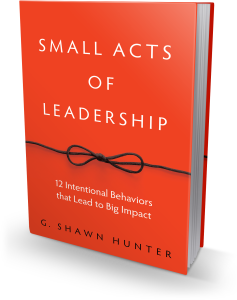You are Successful. But Distracted. Possibly Bored. What Happened?
You are successful. You worked hard for years with laser focus developing unique and sought-after expertise that no one else could quite replicate at your company. It paid off. You are highly valued. People ask your opinion. They invite you to join projects. They buy you drinks.
But lately you are distracted, almost bored. It’s not that you don’t have lots of projects going on. You do. Actually a ton of interesting people and projects keep arriving at your feet. They are all fascinating and exciting, and brimming with opportunity. For five minutes.
The problem is they aren’t your projects. They are someone else’s. And while their enthusiasm is contagious and fun, in the end it’s their project, not yours. And for that reason the buzz doesn’t last. You became sought-after and valuable because of your unique and unparalleled expertise. And that success has brought opportunity. And those opportunities have created distractions which leave you unfocused, drifting, and wondering when you can get back to what you love. Which is hard to do since all of these enticing opportunities keep presenting themselves.
Only Do What Only You Can Do: You became passionate, and excellent, and sought-after, by focusing the bulk of your time on only doing what only you can do. In other words, taking on the kinds of projects and challenges that you are uniquely predisposed to do.
Let’s take a few tips from choice expert, Sheena Iyengar, on how to bring some discipline to your decisions.
Step 1: Write down all of the things that you do in a given work week. What is extraneous, redundant, or can be offloaded to someone more qualified? According to Sheena, it should be at least 50%, ideally 75%.
Step 2: Of what’s left on the list, ask yourself, “When I work on this task do I experience greater frustration or greater joy or reward to others upon accomplishing it?” Of those items high in frustration, you want to 1. do quickly 2. offload, or 3. just stop doing. Because remember that tasks you find frustrating, someone else finds easy or rewarding.
Step 3: What’s left should be tasks in which you create greater value than frustration, produce greater joy than pain, and build greater value than distraction. Categorize them by type of task. Ah, you just learned something about the types of things you do.
Step 4: Finally, of what’s left in the high impact, high value, high reward, low frustration category, ask yourself, “Am I the most qualified person available to be doing this?”
You have now arrived at Only Do What Only You Can Do. In this place you have found the intersection of skill, passion, and impact. In this place you love your work, learn quickly and deliver high value to the team around you. In this place you can recapture your mojo.
But this does not give you license to become a prima donna, or shirk shared obligations. There are always chores that need to be done by any team, and you likely have specific deliverables that make you yawn every week. Step up. Lean in. It’s what keeps the trains running.
My suggestion is to remember what made you valuable in the first place, and not lose sight of honing that expertise.
Start one small act at a time. Try our course Small Acts of Leadership to build action into your life every single day.
- ____________________________________________________

Last summer, my son and I bicycled across America with two other dads and their teenagers. We published a new book about it called Chasing Dawn. I co-authored the book with my cycling companion, the artist, photographer, and wonderful human jon holloway. Buy a copy. I’ll sign it and send it to your doorstep.



